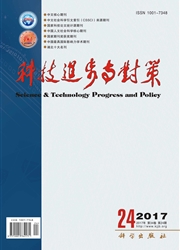

 中文摘要:
中文摘要:
新兴市场企业通过不懈追赶实现快速崛起,引起越来越多学者的强烈关注,其追赶战略的形成在很大程度上受本国制度环境的影响。新兴市场国家处于从计划经济到市场经济的转型进程之中,在这一制度变迁背景下,企业面临诸多市场机遇,同时必须建立适应制度变化的能力以保证企业战略的动态性。从技术追赶和市场追赶两方面构建新兴市场企业追赶战略,技术追赶遵循改进型模仿、资源整合、自主创新的路径,市场追赶则主要利用成本领先和差异化优势提升市场份额,技术追赶与市场追赶相互促进,企业国际化既是追赶目的也是追赶手段。
 英文摘要:
英文摘要:
The emerging market firms rapidly grow strong through consistent catching-up,which draws the keen attention of scholars. The institutional environment influences the formation of firm's catching-up strategies. The institutional transition context brings opportunities for firms,meanwhile it requires firms to establish the abilities of adapting the volatility of institution. The firms catching-up strategies are constructed from two facets, that is technology catching-up and market catching-up. The technology catching-up follows the path of improved imitation,resource integration and self-innovation, while the market catching-up strategy depends on the advantages of cost leadership and differentiation to improve the mar- ket share; technology catching-up and market catching-up are interacted, while internationalization is both the means and ends of catching-up.
 同期刊论文项目
同期刊论文项目
 同项目期刊论文
同项目期刊论文
 期刊信息
期刊信息
